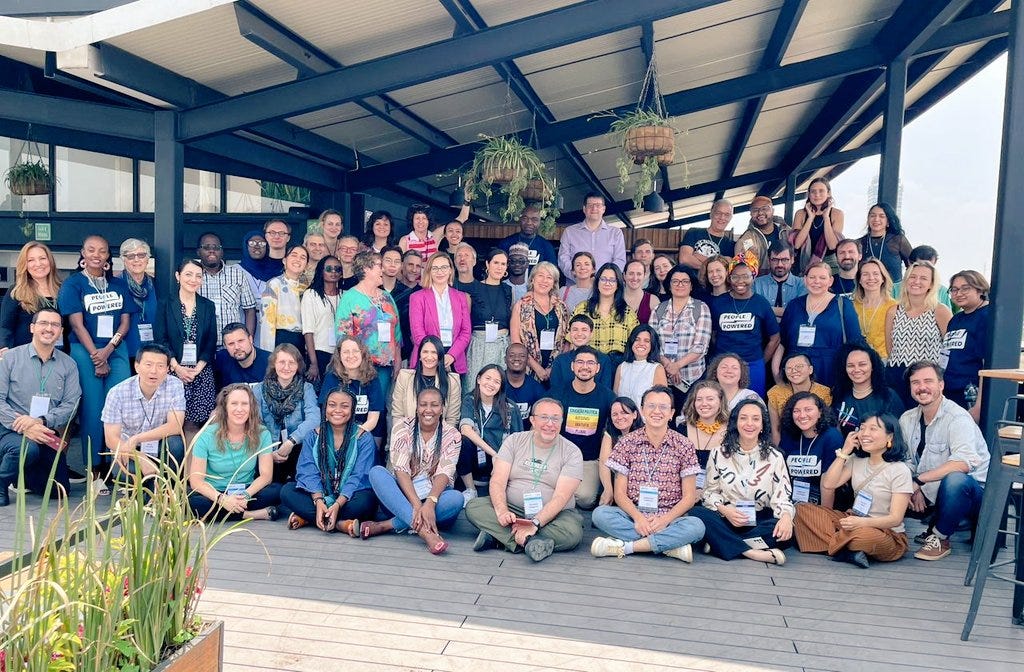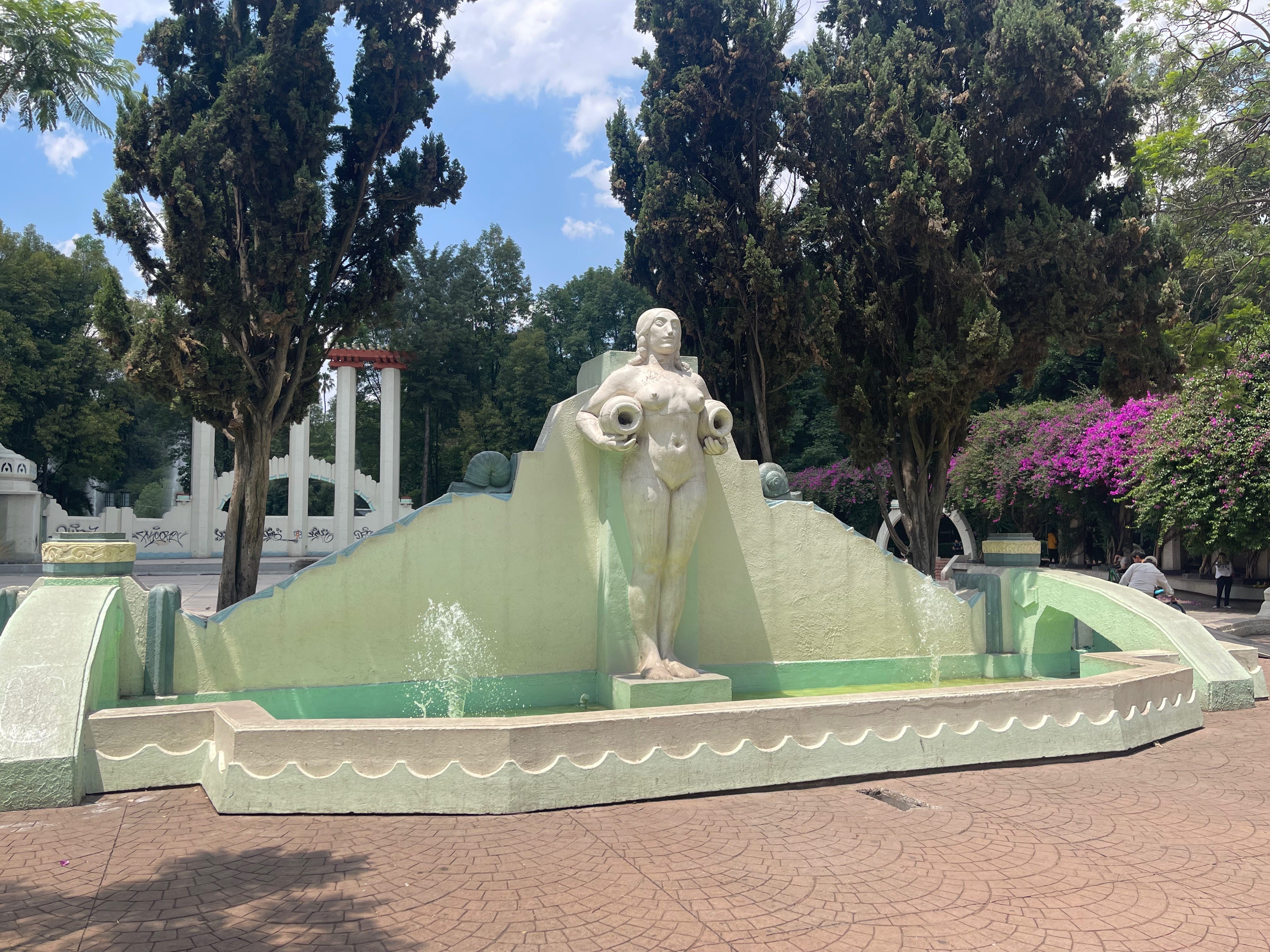Optimism power up
Plus: do citizens want to be involved, why is Russia as it is, and what's happening to Brussels' water features.
There are times when the task of democratic innovation seems impossible. The scale of government, the habits of power, the disillusion of citizens - everything argues that sustainable change is an immense task.
Then, you look around at the organisations who are working towards that goal. Often non-profit, almost always small, working from pay cheque to pay cheque, spending money on dead-end bids or endless grant administration. They are stuck with the classic NGO dilemma: how to fund a service that has to be free to citizens, can’t be at the mercy of governments, and won’t ever be funded by foundations to the scale that is needed for real change.
It is easy to despair. We are asked to build a full-scale skyscraper with matchsticks - and we don’t know the design of the skyscraper.
This is why I often say that to be a democrat, you have to be an optimist. Not only to believe that the people collectively are more reliable than experts or authoritarians, but also to believe that we can remake democracy with the tools and resources that we have.
That’s why events like the People Powered gathering that has just finished in Mexico City are so important.

People Powered is a three-year old network of participation and deliberation organisations, with a global membership. The Mexico City event was, thanks to Covid, the first in-person event since the launch, and the growth of the network was impressive, with participants from China, Indonesia, Kenya, Senegal, Colombia and Argentina, as well as the usual European and North American suspects. The location of the event also ensured a broad participation from Central and South America.
Often, these events can be like a conversation at a good dinner party - one where you have enough in common for easy conversation, but enough differences to find each other interesting. It’s all very enjoyable, but then it’s the end of the evening, you say that we must find another time to do this and head for the metro. Then, before you’re through the ticket gates at the other end, all you remember is the warm glow.
People Powered, thankfully, has the funding and the global support team to allow us to follow up - and, more important, to ensure that we do more together in the future.
This is what is so important - the little bit of extra support to reduce some of the missed connections and smooth opportunities for learning and partnership.
It sounds insignificant, but it really isn’t. All the friction and the overhead of network maintenance, learning, and bidding is a direct cost in time to organisations that often live on thin margins. Take 20% of that cost out, and it’s pure benefit to the organisation, enabling them to do more, and to do it better.
Equally important, the overhead of reinvention is also reduced. Every situation is different, every project has its own specificities, but the more we can use common approaches, common standards and common templates, the easier and quicker it will be to start up, run and evaluate projects.
That may not sound like much, but it’s essential, and the network growth of recent years creates opportunities for deeper integration in the future. The small-NGO problem will always be with us, for good reasons of diversity and closeness to communities as well as for bad ones of funding and lack of capital. The answer is to reduce the negatives by creating shared connection in a democratic network, as People Powered is, and then creating wider connections.
So, thank you to People Powered and the great hosting team in Mexico City. Thanks to all the participants who turned up in every sense of the word. I’m leaving Mexico with a sense of optimism - not that all the problems are solved, but that a trustworthy and open infrastructure for participation and deliberation is in the first stages of construction. I’ll worry about all those other challenges tomorrow.
Tram lines
As if to highlight that participation and deliberation are just part of the picture, Nature published a study on how much people want to be involved in local decision making - and showed that citizens generally want a balance of citizen involvement and government decision making.
Radio-Television Brussels
It’s not often that I recommend listening to Donald Trump’s appointees, but Fiona Hill is an exception, and her interview with Gideon Rachman is worth a listen. She focuses on the state of Russia and its leadership - and draws a link from its current terrible crimes to an outmoded conception of the modern world, which starts at the top.

Vijfhoek
I’ve been in Mexico all week, admiring modernist architecture like the Fuente de los Cántaros, or the fountain of the jugs, above. Meanwhile, back home, the city has announced it is restoring a number of closed fountains, including the one on the Bloemenhofplein / Place du Jardin des Fleurs and the one by Bozar - but that others will stay dry because they are impossible to repair or waste too much water. Bruzz has more [NL].